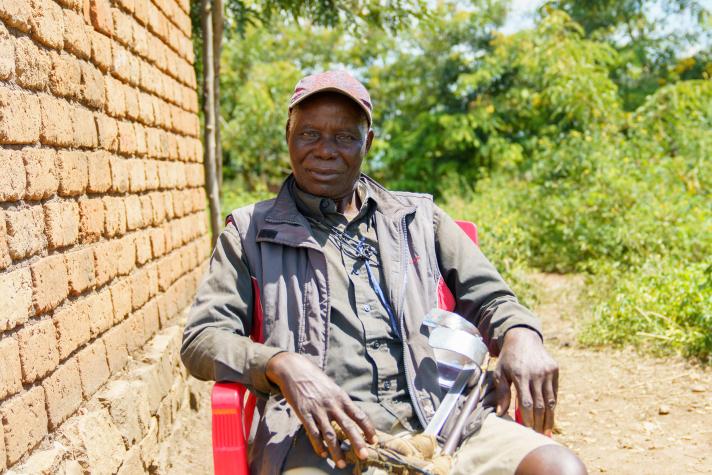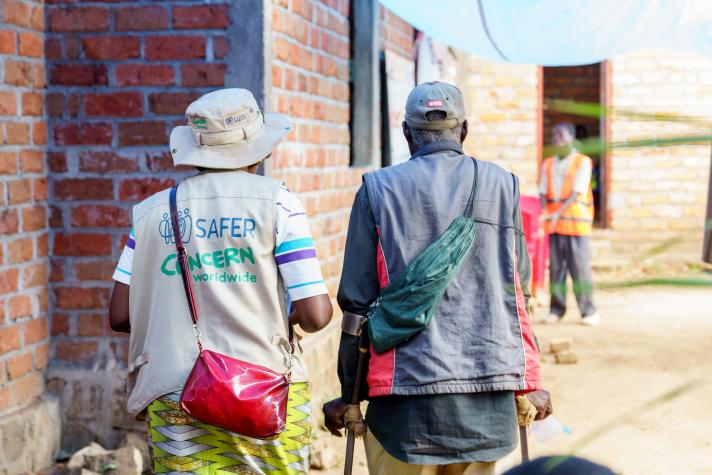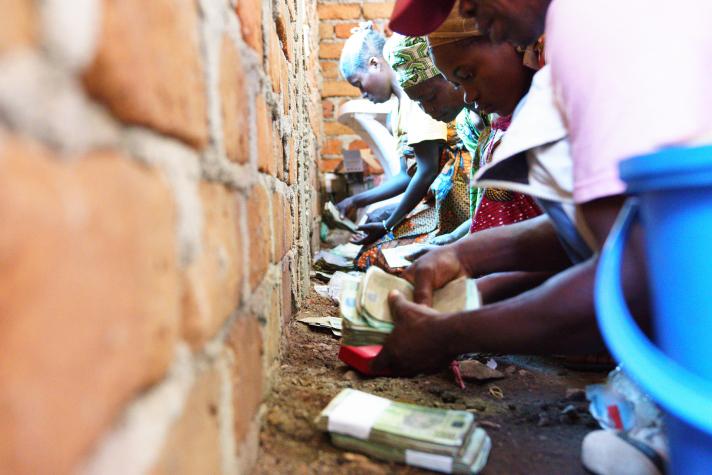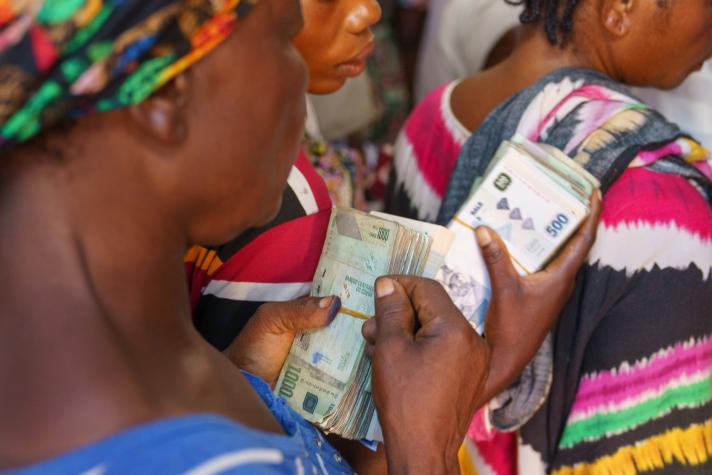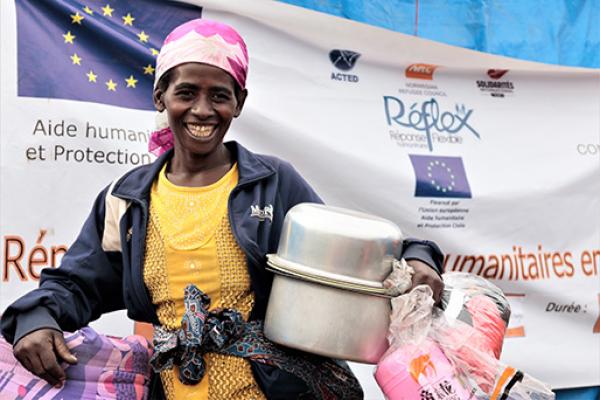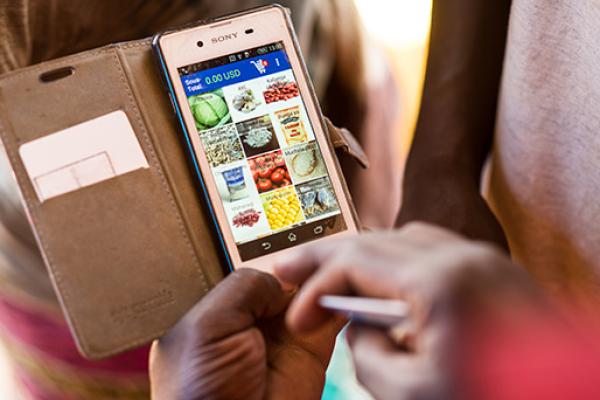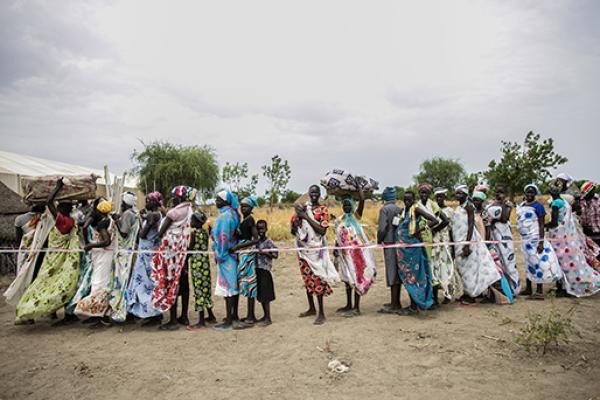“In my extended family, I am considered worthless because I can't provide any help or solutions to their problems. Faced with this handicap, some members of the community are sympathetic towards me; others, on the other hand, laugh at me, mock me.”
Itotecho is 65 years old. He is married, and a father to 8 children – 4 boys and 4 girls. He has 1 leg, after surviving a bomb blast 25 years ago, and moves on crutches.
“As life became more and more difficult, my wife became the sole provider, covering all the household needs,” Itotecho says. “I’m a tailor by trade, and a farmer. My family depended on this. We used to live happily together, enjoying the fruits of my labour. My family life was stable, and my children went to school thanks to this work. Now, some of our children are no longer in school for lack of funds.”
Itotecho and his family are among the 7 million people internally displaced by violence and natural hazards in the Democratic Republic of the Congo (DRC).
When forced to leave land, livestock and livelihoods behind, parents struggle to feed their children. After decades of conflict, the world’s largest food crisis continues in the DRC, with 25.8 million people – a quarter of the population – suffering from food insecurity in 2023.
Displacement is devastating for any family. Those already living in conditions of extreme poverty, without savings or valuable assets, are especially vulnerable. For people living with a disability, the challenge is even greater.
"Since December 2023, we have fled atrocities and violence orchestrated by local armed groups,” Itotecho says. “To get to our host village, we had to walk for 1 week, as I couldn't travel for long periods at a time because of my physical condition.”
Concern, in partnership with the European Union, is providing support to internally displaced people in eastern DRC.
The programme, named SAFER, is a rapid response programme; Concern, in coordination with other humanitarian organisations, supports displaced families in the immediate aftermath of violent attacks. One form of support is cash.
More than 50 years of on-the-ground humanitarian work and extensive academic research, has informed Concern’s understanding that directly giving cash is an effective way to support people experiencing a crisis or disaster.
If there are functioning markets within reach, cash provides a family the opportunity and agency to meet their self-assessed needs.
Over the course of 9 days in March 2024, Concern, in partnership with other humanitarian organisations, distributed cash to nearly 8,000 households, or 60,000 people, at a distribution site in Congo’s South Kivu province. Itotecho’s family were among those who benefitted. He describes the intervention as “a godsend.”
“As for the use of this assistance, in agreement with my wife, we will draw up a small list of priority needs – food, clothing, school fees,” he says. “With the rest of the money, we will start a small business, to help the survival of our family. This aid will enable my family to resume our normal life.”

